Ditapis dengan

Religion: An Anthropological View
- Edisi
- First Published
- ISBN/ISSN
- -
- Deskripsi Fisik
- xv + 300 pgs.; 22 cm.
- Judul Seri
- -
- No. Panggil
- 200 WAL r
- Edisi
- First Published
- ISBN/ISSN
- -
- Deskripsi Fisik
- xv + 300 pgs.; 22 cm.
- Judul Seri
- -
- No. Panggil
- 200 WAL r
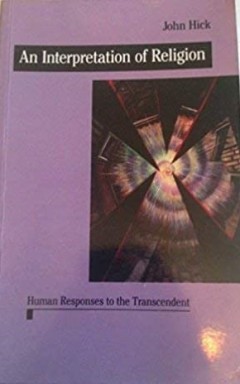
An Interpretation Of Religion
In this classic work, prominent religious philosopher John Hick presents a global interpretation of religion, arguing for a religious response to our ambiguous universe and showing how the world’s different religions are culturally conditioned forms of that response. Praise for the first edition: “This book strengthens Hick’s position as one of the most significant thinkers of the second …
- Edisi
- First Published
- ISBN/ISSN
- 0-333-39488-7
- Deskripsi Fisik
- xv + 412 pgs.; 21,5 cm.
- Judul Seri
- -
- No. Panggil
- 200.1 HIC i
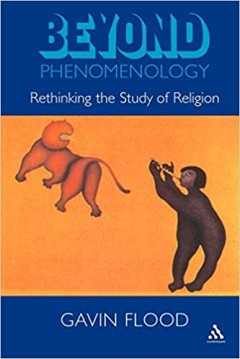
Beyond Phenomenology: Rethinking The Study Of Religion
This book argues that the understanding and explanation of religion are always historically contingent. Grounded in the work of Bakhtin and Ricoeur, Flood positions the academic study of religion within contemporary debates in the social sciences and humanities concerning modernity and postmodernity, particularly contested issues regarding truth and knowledge. It challenges the view that religi…
- Edisi
- First Published
- ISBN/ISSN
- 0-304-70131-9
- Deskripsi Fisik
- v + 311 pgs.; 23,5 cm.
- Judul Seri
- -
- No. Panggil
- 200.71 FLO b

Introduction To The Study Of Religion
- Edisi
- First Published
- ISBN/ISSN
- 0-06-063572-X
- Deskripsi Fisik
- xiv + 269 pgs.; 23,5 cm.
- Judul Seri
- -
- No. Panggil
- 200.7 INT i
- Edisi
- First Published
- ISBN/ISSN
- 0-06-063572-X
- Deskripsi Fisik
- xiv + 269 pgs.; 23,5 cm.
- Judul Seri
- -
- No. Panggil
- 200.7 INT i

Religion In Social Context: Tradisi and Transition
- Edisi
- First Published
- ISBN/ISSN
- -
- Deskripsi Fisik
- ix + 246 pgs.; 21 cm.
- Judul Seri
- -
- No. Panggil
- 201 DEM r
- Edisi
- First Published
- ISBN/ISSN
- -
- Deskripsi Fisik
- ix + 246 pgs.; 21 cm.
- Judul Seri
- -
- No. Panggil
- 201 DEM r
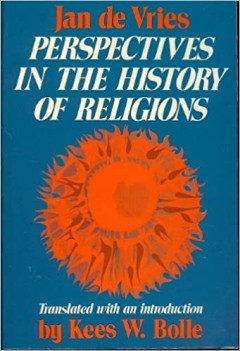
Perspectives In The History Of Religions
An introduction to the history of religions surveys the attitudes toward religion expressed by thinkers, scholars, and writers from classical antiquity to the twentieth century
- Edisi
- First Published
- ISBN/ISSN
- 0-520-03300-0
- Deskripsi Fisik
- xxiii + 231 pgs.; 20 cm.
- Judul Seri
- -
- No. Panggil
- 200.9 VRI p

Paganism In The Roman Empire
Though the Romans to some extent brought about religious uniformity in the Empire by spreading the worship of their own gods, and by adopting those of their subjects, there was, of course, no such religion as Paganism - only a body of cults, not welded into a coherent whole, and presenting themselves under many different aspects.1 The ceremonies and institutions of the old national faith hardly…
- Edisi
- First Published
- ISBN/ISSN
- 0-300-02655-2
- Deskripsi Fisik
- xiii + 241 pga.; 24 cm.
- Judul Seri
- -
- No. Panggil
- 200.937 MAC p
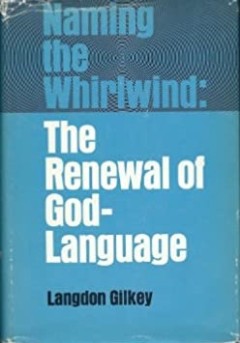
Naming The Whirlwind: The Renewal Of God-Language
According to the author, the main efforts of this book are to describe the background and character of the present ferment in theology. It appeared first in the form of a paper on the radical, or "God is dead," theology, written for the Society for Theological Discussion in the fall of 1963. And to assess the importance of this upheaval for contemporary religious thought to point out some of th…
- Edisi
- First Published
- ISBN/ISSN
- -
- Deskripsi Fisik
- x + 483 pgs.; 21 cm.
- Judul Seri
- -
- No. Panggil
- 200 GIL n
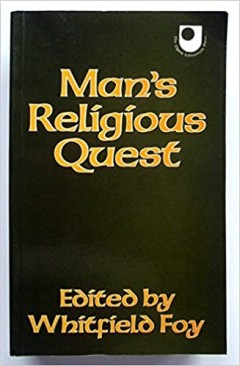
The Religious Quest
- Edisi
- First Published
- ISBN/ISSN
- 0-85664-548-6
- Deskripsi Fisik
- 725 pgs.; 21,5 cm.
- Judul Seri
- -
- No. Panggil
- 200.8 REL r
- Edisi
- First Published
- ISBN/ISSN
- 0-85664-548-6
- Deskripsi Fisik
- 725 pgs.; 21,5 cm.
- Judul Seri
- -
- No. Panggil
- 200.8 REL r
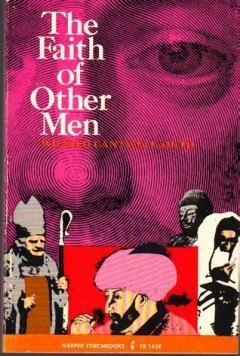
The Faith Of Other Men
- Edisi
- First Published
- ISBN/ISSN
- 06-131658-X
- Deskripsi Fisik
- 140 pgs.; 20 cm.
- Judul Seri
- -
- No. Panggil
- 200 SMI f
- Edisi
- First Published
- ISBN/ISSN
- 06-131658-X
- Deskripsi Fisik
- 140 pgs.; 20 cm.
- Judul Seri
- -
- No. Panggil
- 200 SMI f
 Karya Umum
Karya Umum  Filsafat
Filsafat  Agama
Agama  Ilmu-ilmu Sosial
Ilmu-ilmu Sosial  Bahasa
Bahasa  Ilmu-ilmu Murni
Ilmu-ilmu Murni  Ilmu-ilmu Terapan
Ilmu-ilmu Terapan  Kesenian, Hiburan, dan Olahraga
Kesenian, Hiburan, dan Olahraga  Kesusastraan
Kesusastraan  Geografi dan Sejarah
Geografi dan Sejarah